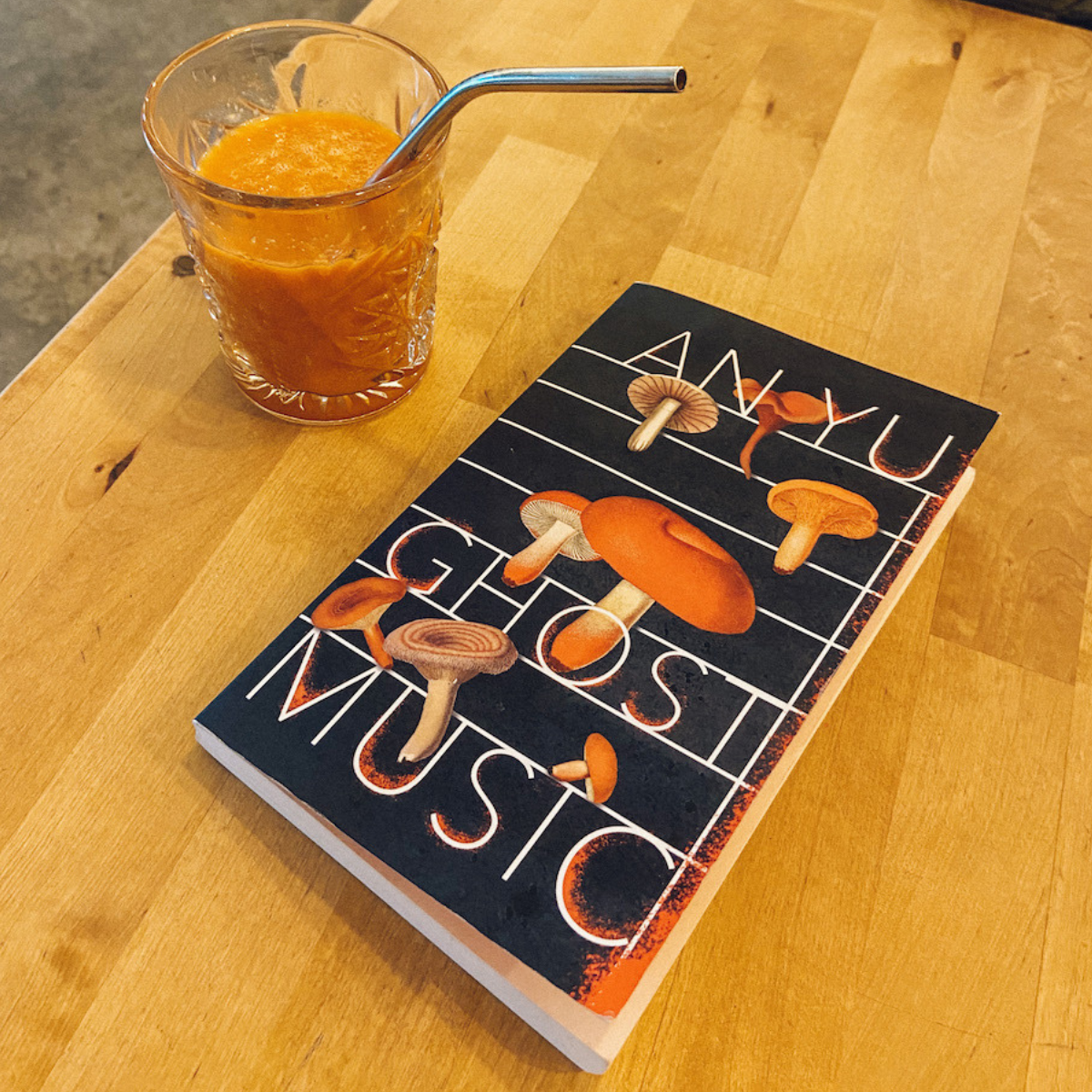Ghost Music: A Book Meditation & Writing Prompts
Over at WOW, we know that nothing inspires writing like reading. That’s why this year, we’ll be bringing you a book review every month. Although we’re not big on calling it a review, so we went with meditation. We’re not so interested in judging the value of a piece of work. We’d much rather tell you about all the great stories that are out there.
At the moment we’re also very much inspired by this Instagram post we saw last week. It said: ‘In a pie-eating contest, it doesn’t matter if you win or lose because you get to eat pie.’ It’s the process of sitting down and reading a book, spending a few hours in a different world that matters more than the quality of the book (although it helps if it’s really delicious). It’s the writing, the time you carve out in your daily life just for you and that notebook, the time you spend with the part of you that conjures up images and words like no one else, that matters more than where that story ends up going.
So, let’s talk book. This month Eline read Ghost Music by An Yu.
Set in contemporary Beijing, we read from the perspective of Song Yan. She gave up her career as a concert pianist when she married her husband and is now mostly teaching young piano students. She’s been living like this for three years, when her mother-in-law moves in with them. At the same time, mysterious packages start arriving, containing a different kind of mushroom every week. And while her mother-in-law reveals that she might not know as much about her husband as she thought she did, Song Yan discovers that a world-famous pianist who has been missing for over ten years, might be hiding in plain sight.
I (Eline) love a book that takes me to places I’ve never been before. I can feel my brain struggling to make up the images that are being drawn on the pages. I especially love the moment when my brain realizes that's pointless and lets go of wanting to construct the image. Stops holding on to the shreds that do make sense to me, because I know them from my own life, and lets them just float by in my brain. Then later in the day, when I’m finally putting the clean laundry that has been in a basket in the middle of the living room for at least a week in my wardrobe, one of the shreds will find its way back to the surface carrying with it something I didn’t know was in me. A sentence, a scene, a feeling. Something to take back to the page. Or maybe just to stack between the laundry I’m putting away, because getting to the page seems too hard right now. Sometimes it’s enough to know it’s there, between my dungarees and cardigans.
If you are ready to get to the page and could do with a little input. Here’s two writing prompts based off of quotes from An Yu’s Ghost Music.
1.
“As I reached for the octave chords, ever so faintly, I began to feel a pot of anger simmering inside me. At first, my impulse was to ignore it. I knew this feeling well. I’d always been able to put a lid over it. Where was this feeling coming from? It was arguably the most unfitting emotion for this piece. While I was thinking this and preparing for the key change, in an instant the anger boiled and erupted.
All of a sudden, the sensation became new to me and I didn’t have a single idea what to do with it. It was burning me. The music took on a quality that I hadn’t heard in my own playing before. With every key I pressed down, the feeling flared up again. I stared into the orange and it gazed back at me as if trying to provoke me further. Then I figured out what I was angry at.
It was the piano.
Keep playing, I told myself, you mustn't stop playing. I knew that if I stopped right now, this anger would never recede. So I held on to it and allowed it to grow. I nurtured it with my music. When I reached the last bar, my throat was dry and I was sweating all over. I wanted to tear through walls, run to a park, lie on the ground and let the icy, wet soil engulf me.”
So, of course, there’s always the first question of: what does this paragraph of writing stir in you? Is there anything that comes to the surface? Enough to set a timer for, let’s say, 10 minutes and write your heart out for a little bit?
And if you need a little more, let me ask you this: is there anything you’re keeping a lid on when you’re writing? If yes, do you know why?
2.
“‘You told me once that you want to be remembered,’ I said. ‘Isn’t that a desire?’
‘You could say that’s my only desire. Although, from how I see it, it’s not so different from survival.’
‘So, survival to you is survival in the memory of others? Are you talking about some sort of legacy?’
‘Legacy only applies when you have something to pass down. I don’t. Nothing other than what I am. What do you believe survival to be?’
I reflected on its question; not the part about survival, but the part about belief. What did I belief? There must have been a point in my life when I started doubting, and ever since then, truths have existed on a spectrum, and things I thought were true are perhaps merely beliefs, neither true nor untrue. Do we need truth if we have beliefs? Or, rather, do we want the truth? Isn’t the case that despair is often the result of running out of things to believe in, even though truths have always been plentiful? But when has knowing that those truths exist ever given us a sense of peace?”
What do you believe? What is the difference between truth and belief? What is your spectrum of truth? Write for at least ten minutes or until a poem is starting to form itself.

